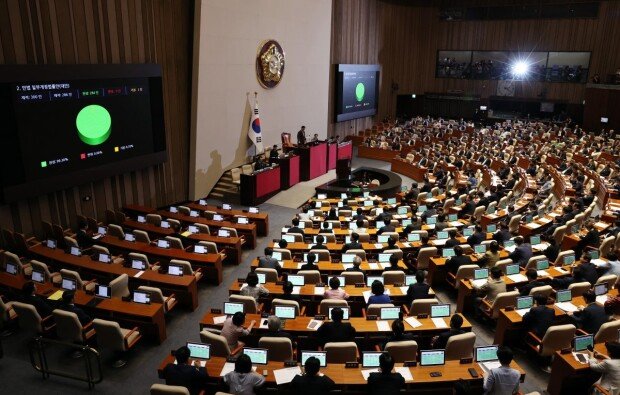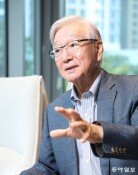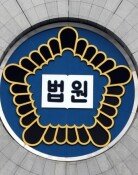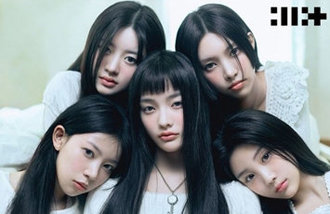Gu Ha-ra Act and other key legislation pass in plenary session
Gu Ha-ra Act and other key legislation pass in plenary session
Posted August. 29, 2024 07:27,
Updated August. 29, 2024 07:27

For the first time since the 22nd National Assembly convened, 27 legislative amendment bills, including the "Gu Ha-ra Act," have passed the plenary session with bipartisan support. The Gu Ha-ra Act, which had previously expired during the 21st National Assembly, has been reintroduced. Additionally, the Special Act on Lump Sum Jeonse Rental Housing Deposit Fraud, previously vetoed by President Yoon Suk Yeol during the 21st National Assembly, was passed after incorporating recommendations from the government and the ruling party. This plenary session was notable as the first in three months where lawmakers engaged in constructive dialogue without resorting to accusations or disruptions. However, tensions are expected to rise again in September when the Democratic Party of Korea plans to introduce the Special Prosecution Act for Late Corporal Chae for the third time.
During today’s session, the Depositor Protection Act was also passed. This legislation aims to protect financial consumers by maintaining the current deposit insurance fee rate, which is collected when a financial institution cannot repay deposits due to bankruptcy until December 31, 2027. Concerns had been raised that failure to pass the bill could lower the deposit insurance fee rate, potentially jeopardizing the fund's stability. Another significant bill passed was an amendment to the National Pension Act, extending the deadline for providing financial subsidies to farmers' and fishers’ national pension funds until December 31, 2031.
One key proposed bill is the Registration of Real Estate Act, which allows electronic registration via mobile devices. With the amendment's passage, people can complete registrations at the contract site using mobile devices, eliminating the need to visit a registration office in person. The bill also proposes expanding the jurisdiction of registration offices, enabling individuals to handle all registration-related matters at a single location.
The ruling and opposition parties have agreed to vote on six contentious bills at the plenary session on September 26. These include the "Broadcasting Act," which was previously vetoed by President Yoon, the "250,000 Won Subsidy for All Koreans Act," and the so-called "Yellow Envelope Act." The Democratic Party plans to reintroduce the Special Prosecution Act for Late Corporal Chae in September, despite significant disagreements with the ruling party.
Democratic Party Floor Leader Park Chan-dae expressed disappointment over the vetoed Special Act for the Restoration of Working Family Livelihoods, which aimed to boost domestic consumption by providing financial subsidies of 250,000 won. He urged the ruling party to support the bill for the sake of restoring people’s livelihoods. In contrast, People Power Party Floor Leader Choo Kyung-ho criticized the subsidy proposal, calling it ridiculous and ineffective and advocating for policies that could genuinely support working families and marginalized groups.
윤명진 기자 mjlight@donga.com
Headline News
- N. Korea reveals HEU production facility for the first time
- Kimpo Airport suffers another Leak, just two weeks after repairs
- Court: First Lady’s brokerage accounts used for stock price manipulation
- Trump’s lies about immigrants eating dogs instigate bomb threat
- India’s first major leaguer Roker puts on ‘7K show’ in debut







